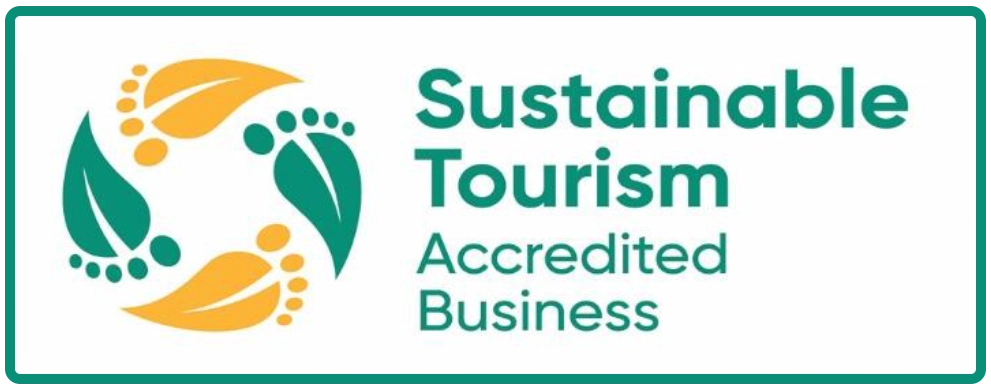Sharks In The Whitsundays
 Blacktip Reef Shark on the Great Barrier Reef.
Blacktip Reef Shark on the Great Barrier Reef.
To put simply, yes there are sharks in the Whitsundays. Will they hurt you? No, it is highly unlikely.
The Whitsunday Islands support an array of unique plant and animal species, that form the vast natural havens of the Great Barrier Reef Marine Park. One of the most vital animals on the planet are sharks, a key player in the delicate balance of biodiverse reef ecosystems. There are many different species of sharks that live, hunt, and breed in the waters of the Whitsundays. The most common being harmless reef sharks such as Blacktips, Whitetips, and Wobbegongs.
Following rare Whitsunday shark incidents in 2018 and 2019, Sharksmart guidelines and campaigns have been increased and promoted to continually improve safety awareness for all visitors to the Whitsunday Islands.
It is important to educate yourself about the crucial importance of sharks in the Great Barrier Reef and shark safety before getting out on the water - let the locals fill you in!
Whitsunday Shark Species
Shark species vary in tropical waters compared to colder oceans. You won’t find larger sharks like Great Whites in the Whitsundays, however large Lemon, Hammerhead, Grey Whaler, Leopard, and Tiger Sharks are found. Most commonly spotted are non-threatening reef sharks, including Blacktips, Whitetips and Wobbegongs. Even the occasional Whale Shark is known to frequent the Whitsundays!
Many inlets and estuaries in the Whitsundays provide safe nurseries for hatching sharks, and often you can see baby lemon sharks in Hill Inlet! Whilst it is rare to see sharks in the popular snorkelling spots, it is also important to be aware that these incredible creatures can be present at any time.
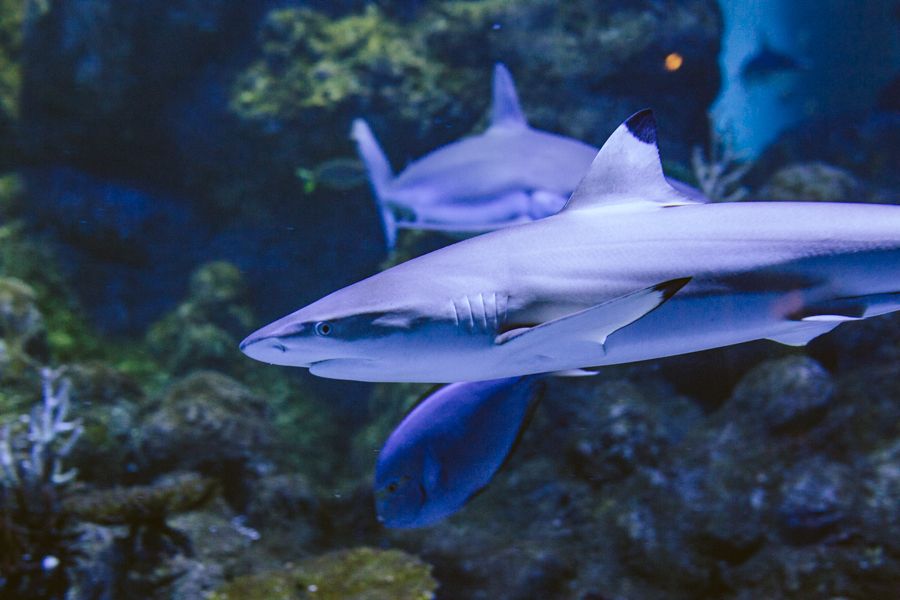 Blacktip Reef Shark in the Whitsundays.
Blacktip Reef Shark in the Whitsundays.
Shark Safety in the Whitsundays
It is important to remember that when we enter the water, we do so at our own risk. The ocean is vast and wild, and it is our responsibility as guests in the Whitsunday waters to educate ourselves.
Following several incidents in Whitsunday waters in November 2018 and October 2019, it is important to listen to your highly trained crew before you enter the water. Never swim at dawn or dusk, avoid swimming in waters with a muddy bottom and well-known fishing areas, and don't swim in areas with 'No Swimming' signs. If you are chartering your own bareboat, it is best to avoid entering the water if you are unsure if the area is safe for swimming.
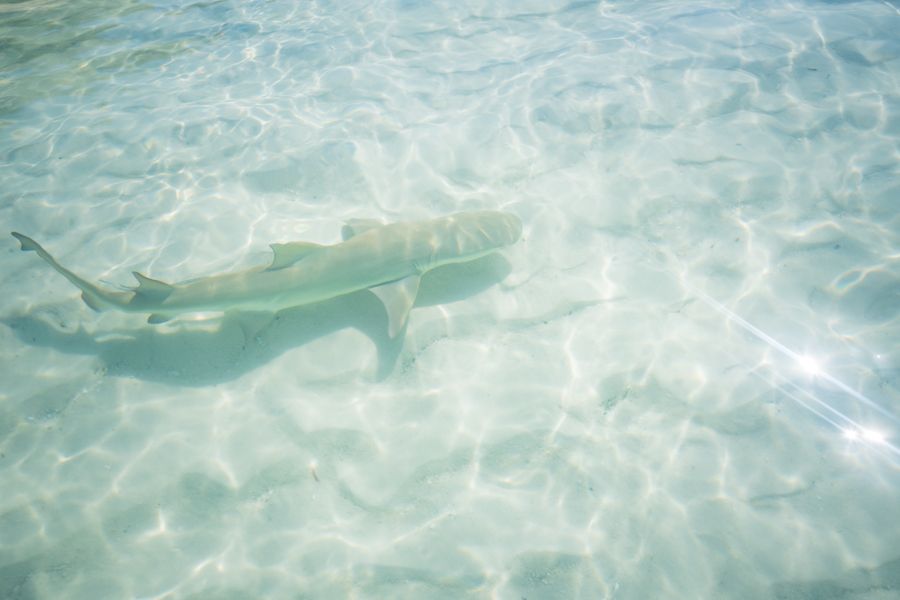 A baby Lemon Shark swimming in Hill Inlet, off Whitsunday Island.
A baby Lemon Shark swimming in Hill Inlet, off Whitsunday Island.
Why are sharks important in the Great Barrier Reef?
The vital role that shark species play in the health of the Great Barrier Reef is often overlooked, as fear and misunderstanding often take precedence. Overall, a decline in shark populations will result in a loss of coral reefs and seagrass beds, as herbivores are hunted by overpopulated numbers of dominant fish species.
1. Reef Health
Sharks play an important role in reef ecosystems as apex predators. They balance ecosystems, keeping the food chain at a healthy and diverse level by picking off weak and sick animals before species numbers become too high. Their presence is generally an indicator of health in any reef ecosystem, especially the Great Barrier Reef!
2. Keeping balance in marine ecosystems
As apex predators, sharks hunt other marine animals and indirectly control populations in seagrass beds and coral reefs, such as those found in the Whitsundays.
When hunting, sharks shift their preys' spatial habitat, forcing them to alter their feeding strategies and move around reef ecosystems to search for food. From smaller species on the food chain swimming away from sharks and grazing for food elsewhere, food sources will spread across reef ecosystems, which ensures that plant and animal species don't deplete.
When hunting sharks take out larger species of fish, such as groupers, space is created for smaller species to flourish. The delicate balance of the Great Barrier Reef ecosystem is vital - if not larger and dominant species will overpopulate the ecosystem!
3. Controlling fish populations and coral growth
If there is no population control of larger fish species a decline of herbivores, fish that control algae growth on coral reefs, will occur. If herbivore populations decline, algae on the reef will dramatically increase, causing declines in coral growth as they compete for space.
From giving smaller herbivores a chance to live, sharks are indirectly allowing coral species to grow and the reef to continue to expand and thrive. If shark populations decline, we can expect devastation worldwide as ecosystems falls out of balance.
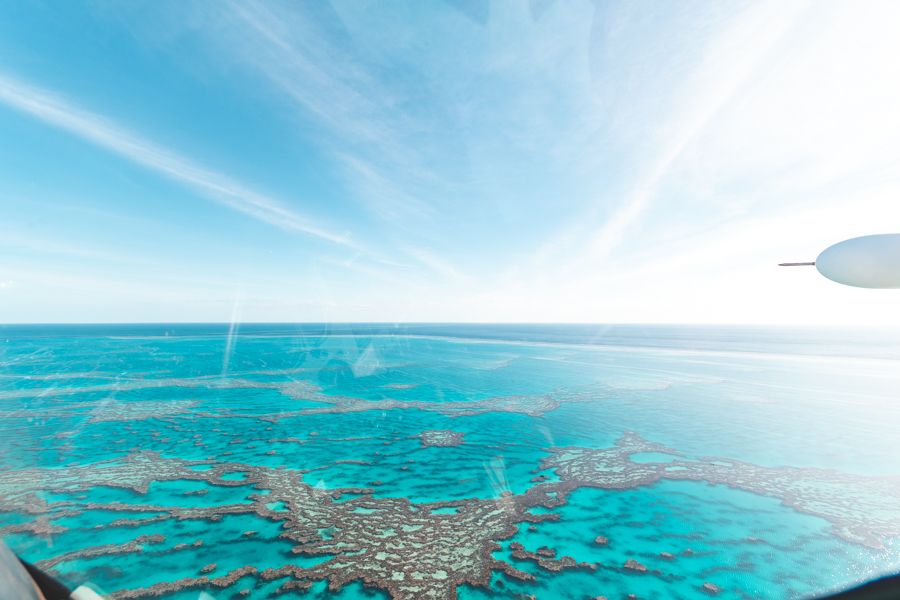 The Great Barrier Reef Marine Park from above.
The Great Barrier Reef Marine Park from above.
Sharksmart in the Whitsundays
While several incidents in the Whitsunday region during 2018 and 2019 have stirred up public debates about shark management, the community has remained greatly divided on the subject. Politicians have called for the deployment of drum lines and shark nets, whereas environmentalist groups have counter-argued that the aimless killing of these necessary preditors does little to protect people and more to damage the ecosystem and food chain on the Great Barrier Reef.
Warning signs and increased education on tours are essential strategies to keep both people and sharks safe in the Whitsundays. "No Swimming" signs have been posted at locations such as Cid Harbour, where deeper waters attract larger fish species and therefore a range of sharks such as tiger sharks, bull sharks, blacktip sharks, and hammerhead sharks. These signs are similar to the crocodile warning signs in the Proserpine River.
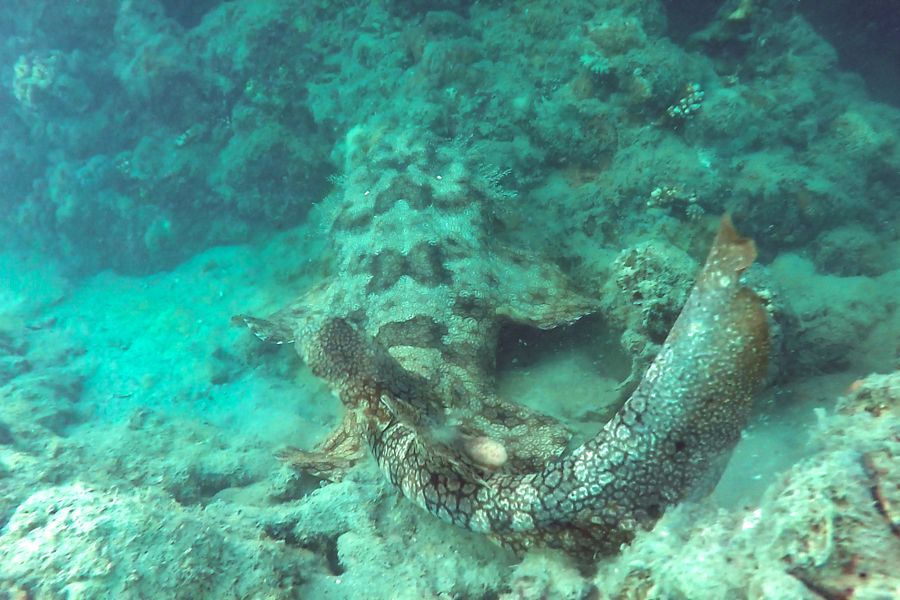 A Wobbegong shark swimming in the Whitsundays.
A Wobbegong shark swimming in the Whitsundays.
There is still so much to learn about these incredible animals, and it is our responsibility to ensure the survival of shark species, to protect the delicate balance of reef ecosystems.










